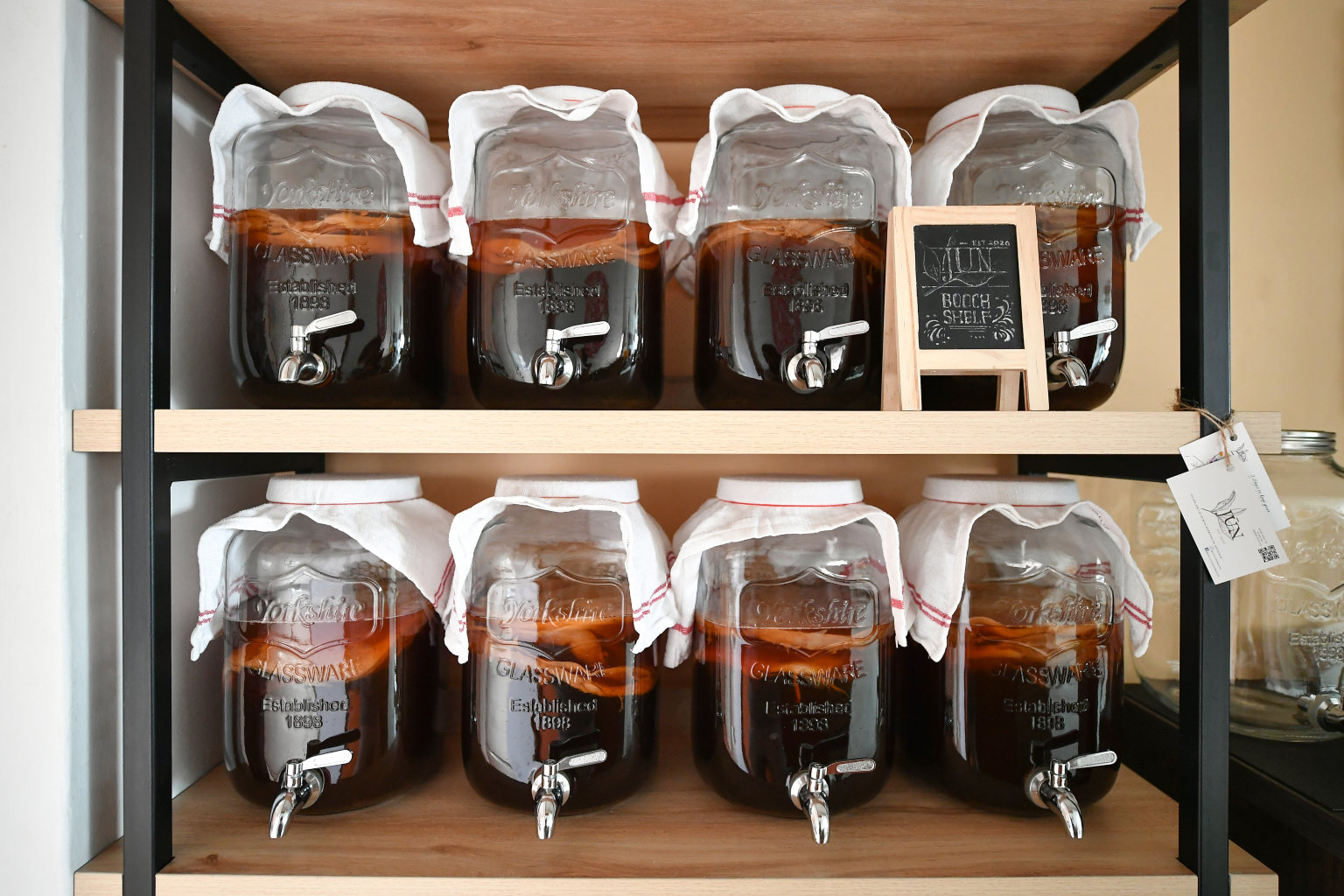The A-Zs that rocked 2021: Fermentation fever
Sign up now: Weekly recommendations for the best eats in town

Ongoing fermentation process at JŪN Kombucha.
ST PHOTO: LIM YAOHUI
SINGAPORE - From kombucha to kimchi, from sourdough to tempeh, fermentation went into overdrive in 2021.
People who were making kombucha to drink at home started selling their wares online, lured by the low barrier to entry. All anyone needs is a scoby - symbiotic culture of bacteria and yeast - plus tea, sugar and time. The scoby turns sweetened tea into kombucha in seven to 10 days.
Then, to make it palatable, people add fruit, fruit juices, herbs and other enhancements.
Slap a label on a glass bottle and, chances are, customers will imbibe.
People drink and eat fermented food to take care of digestion issues, to strengthen their gut health and just for the pleasure of it. Kombucha has become an alternative to fizzy drinks for some.
Home-based businesses such as Moon Juice Kombucha, Katong Kombucha and Jun Kombucha flourished, and some have done well enough to be thinking of levelling up to small, licensed food factory spaces.
Others such as Fizzicle, Pourabucha and Yocha Kombucha have already made the leap. They supply to restaurants and, in the case of Yocha, its drinks are sold in FairPrice and Cold Storage supermarkets, online on Redmart and Amazon, and are also available in restaurants.
Competition is rife, leading to businesses trying their best to stand out from the crowd. So there is low-fizz kombucha, barely sweetened kombucha, herbal kombucha and kombucha with no additional flavouring.
Similarly, a slew of home-based businesses offering kimchi has sprung up, with names like Kindred Kimchi Boy, Kimchi Mania and Kimchi Noona, selling Korean fermented cabbage, cucumber, chives and radish. Some also offer banchan, side dishes that are served as part of a Korean meal.
The sourdough juggernaut became an even stronger force in 2021, with more home-based businesses popping up. If 2020 was about baking loaves of sourdough bread for personal consumption, 2021 saw these businesses scaling up to sell their sourdough bakes.
Again, to differentiate themselves in a crowded market, these businesses are offering not just crusty loaves but also waffles, babka, focaccia, pizza, muffins and cookies.
And then there is tempeh, a centuries-old vegetarian source of protein. In 2021, home-based businesses started up to sell crunchy tempeh chips flavoured with spices, for people looking for high-protein snacks.
This, in turn, has fuelled interest in fresh tempeh. Businesses such as Angie's Tempeh, Big Fat Tempeh and Tempeh Nikmat Lezat offer tempeh made with non-GMO soya beans, and tempeh made with the likes of buckwheat, quinoa, chickpeas, black beans and other legumes.
Next year, some of these businesses are planning for even more tempeh products - frozen tempeh burgers and nuggets, for instance.
Angie's Tempeh will be selling a new, improved version of its tempeh bak kwa for Chinese New Year. It was such a hot commodity this year that the company sold 900kg of it and had to turn away more than 1,000 customers.
Fermentation fever is likely to hit inferno intensity next year.


